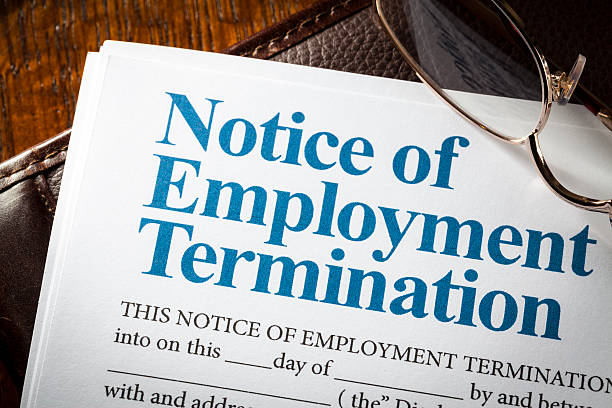Genuine redundancy occurs when an employer lawfully terminates a person’s job since that role is no longer relevant. Employers may also conduct this if they want to restructure their company’s operations.
The reason for the redundancy is considered “genuine” if it is not related to the individual performance of the employee. A redundancy is not genuine if the employer:
- Still needs someone to do the employee’s job
- Could have given the employee another job within the employer’s business
- Has not complied with the consultation requirements outlined in the relevant Modern Award, enterprise, or other registered agreement.
In such cases, the employer may provide the particular employee with severance pay or other benefits. Employees may feel like they have been dismissed unfairly from their work even if the redundancy was genuine. So, it’s important for people to seek legal advice if necessary to avoid legal matters from arising. Read on to know more about genuine redundancy.
What Does the Fair Work Act 2009 Say?
The Fair Work Act of 2009 governs the relationship between employers and employees in Australia. The Act establishes minimum rights and obligation imposed on both parties in a workplace setting.
Additionally, the Act aims to promote fair and productive workplace relations. Section 328 of the Fair Work Act states that a case of genuine redundancy is true if:
- The employer no longer requires anyone to perform the dismissed role due to changes in operational requirements.
- The employer has provided a consultation process about the redundancy imposed by an applicable modern award or enterprise agreement.
- It would not have been reasonable to redeploy the affected employee within the employer’s enterprise or the enterprise of an associated entity of the employer.
When Is Genuine Redundancy Lawfully Acceptable?
1. New Technology
Technology has been always helpful to mankind in many ways. This includes improving people’s quality of life, especially in education, transportation, healthcare, communication, and even entertainment.
Unfortunately, technology can also lead to a person’s dismissal and replace them in their position. Such certain circumstances may include:
- Manufacturing: Automated assembly lines, robots, and 3D printing have replaced human workers in many manufacturing industries, including automotive and electronics manufacturing.
- Retail: Self-checkout machines, automated inventory systems, and online shopping have replaced many cashiers, stock clerks, and sales associates.
- Transportation: Self-driving vehicles and drones have the potential to replace truck drivers, delivery workers, and taxi drivers.
- Data entry: Software programs and machine learning algorithms have replaced many data entry workers, who previously manually entered information into databases.
- Customer service: Artificial intelligence-powered chatbots and virtual assistants have replaced human customer service representatives in many industries, handling simple inquiries and tasks such as answering frequently asked questions.
2. Business Slows Down
Slow business equates to low income, in which, employees receive almost little to no salaries. A slow business can be a reason for genuine redundancy if the decreased demand for the company’s goods/services results in a company workforce reduction.
Hence, companies may have to eliminate positions that are no longer necessary due to decreased demands or services. However, it is important for the employer to follow a fair and reasonable process in selecting employees for redundancy.
This means they should take into account factors such as the employees’ skills, experience, and performance. The employer must also provide appropriate notice or compensation/termination payment in lieu of notice to the employees.
3. Business Relocated and Closed Down
Slow business can also lead to the business closing or relocating in a better place. A business that is closing down may dismiss employees. This is the same for businesses that need to relocate, but with employees who cannot comply with the move.
4. Restructuring
Restructuring of a company can lead to a genuine redundancy. This may include downsizing, merging, or automation of certain tasks. Restructuring can lead to the elimination of positions that are no longer needed, resulting in true redundancies. In such cases, affected employees may be eligible for redundancy compensation under their jurisdiction’s employment and tax law.

Minimum Notice Periods
Employers should be responsible for providing written notice to their employees before they terminate them due to genuine redundancy. Additionally, employers should provide this notice should in writing and should specify the date on which the employment will end.
The notice should also include the employee’s entitlement to redundancy pay. The National Employment Standards (NES) determine the minimum notice period based on the number of years the employee has worked for the company.
All modern awards and registered agreements require employers to consult with employees about major workplace changes that may affect employment. Employers must:
- Inform any employees who may be impacted by the proposed changes.
- Provide relevant employees with information about the changes and their expected effects. This includes the possibility of redundancy;
- Inform their employee about how to mitigate the negative effects of the proposed changes and termination payments; and
- Consider the suggestions of employees regarding the changes and the impact on their employment.
Here are the minimum notice periods according to the NES:
| Period of employment | Minimum notice period |
| Less than one year | One week |
| 1-3 years | Two weeks |
| 3-5 years | Three weeks |
| More than five years | Four weeks |
Note: The applicable industrial instrument will usually determine the period of notice. This includes the contract of employment even if the contract is unwritten.
Genuine Redundancy: Redeployment
An employee’s dismissal cannot be considered genuine redundancy if it would have been reasonable in all the circumstances to redeploy them. Employers who fail to offer redeployment to redundant employees may face legal consequences.
The question of whether redeployment is reasonable is dependent on a variety of factors. These are:
1. Employers must explain why they did not provide options for the employee to continue employment. They must also provide alternative roles for them if the employees were laid off. If not, dismissed employees may file for an unfair dismissal claim or tax free redundancy payments.
2. There must be a vacant job for which the redundant employee possesses the necessary skills and competencies to work immediately. Employers may also provide a reasonable period of retraining if the employee can vacate a new position.
3. The other positions must be suitable in terms of compensation, duties, seniority, location, and any other factors that distinguish it from the role being replaced.
Note: Needless to say, it is always best to discuss the tax treatment of termination payments with an employment lawyer.

Importance of Seeking Legal Advice Genuine Redundancy
Employers should not lay off their employees from their work without reasonable grounds and notice. JB Solicitors is dedicated to defending employees who were wrongfully dismissed in their workplace.
Our team of lawyers can also help employers decide the best alternatives and options for their dismissed employees due to genuine redundancy.
Contact one of our employment lawyers today if you have legal matters regarding employment law.
